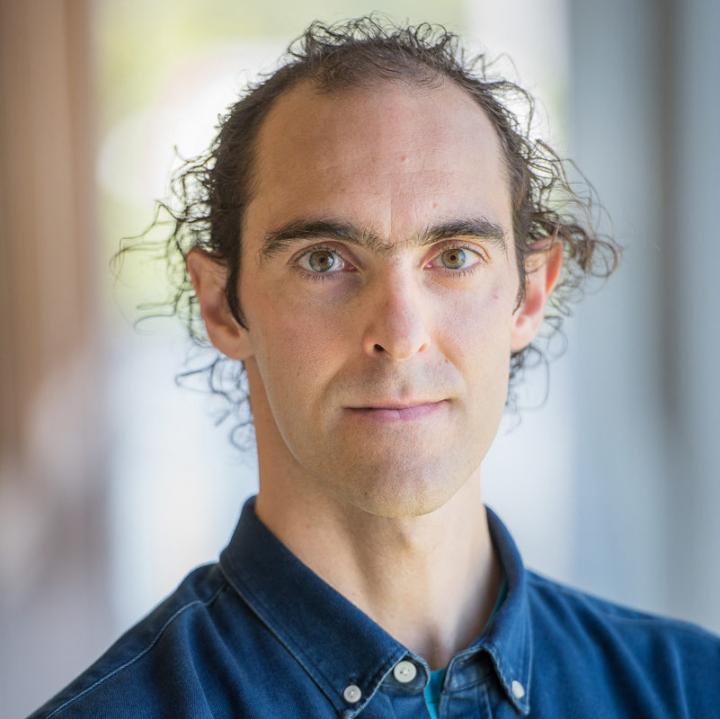
Credit: Chris Shinn
Whether in an earthworm or a human being, developmental processes are driven by complex networks of genetically-encoded signals that enable cells to take cues from each other and their environment. To begin unraveling this complexity, USC Stem Cell scientist Leonardo Morsut, PhD, is designing artificial genetic programs to perturb natural signaling networks and study how this inflects embryonic development, with support from a $2.56 million grant from the National Institute of General Medical Sciences at the National Institutes of Health (NIH).
Known as the “Maximizing Investigators’ Research Award” or R35, the highly competitive grant provides five years of support for the nation’s most talented scientific investigators.
Morsut, who is an assistant professor of stem cell biology and regenerative medicine at the Keck School of Medicine of USC, will use the new NIH grant to understand developmental programs by actually building them in his laboratory at the Eli and Edythe Broad CIRM Center for Regenerative Medicine and Stem Cell Research at USC.
To this end, he has already engineered one handy tool: a synthetic version of a naturally occurring cell communication system known as “Notch.” In the naturally occurring Notch system, cells use sensors on their surfaces that recognize particular signals and trigger specific responses. In Morsut’s synthetic Notch or “synNotch” system, he can affix a sensor of his choosing to the surface of a cell–controlling which signal the cell recognizes, as well as how it responds.
Morsut and his collaborators can deliver the chosen signal in a variety of ways: the signal can be presented by another cell, or the signal can be a micro-contact printed onto a surface in a pre-determined pattern.
To complement this powerful “in vitro” system for controlling cell behavior, Morsut’s group has also developed a computer-based “in silico” simulation to predict how signaling networks will drive developmental processes. Both “in vitro” and “in silico,” Morsut has succeeded in directing groups of individual cells to self-organize into multi-layered structures–loosely evoking what happens in the earliest stages of embryonic development.
Building on these discoveries, Morsut’s laboratory will explore how Notch and other signaling networks drive the formation of the early precursors of the vertebrae–a process fundamental to all vertebrates.
In addition, his laboratory will work to develop new synthetic tools to control not only how cells signal to each other, but also how cells adhere to each other. These tools will empower Morsut’s lab to perturb and construct common and stereotypical developmental processes, such as branching growth or loss of cellular adhesion, that underpin the formation of many different organisms and organ systems.
“With this approach that we call ‘understanding by building,’ we hope to advance the field of developmental biology by shedding light on the behavior and logic of how multicellular systems form coherent, functional tissues and organs,” said Morsut. “These insights and tools could advance efforts to control the growth of tissues and organs in the laboratory, as well as to inform early interventions for birth defects and better treatments for a broad array of diseases.”
###
About Keck School of Medicine
Founded in 1885, the Keck School of Medicine of USC is one of the nation’s leading medical institutions, known for innovative patient care, scientific discovery, education, and community service. Medical and graduate students work closely with world-renowned faculty and receive hands-on training in one of the nation’s most diverse communities. They participate in cutting-edge research as they develop into tomorrow’s health leaders. With more than 900 resident physicians across 50 specialty and subspecialty programs, the Keck School is the largest educator of physicians practicing in Southern California.
Media Contact
Tana Watanabe
[email protected]
Original Source
https:/




